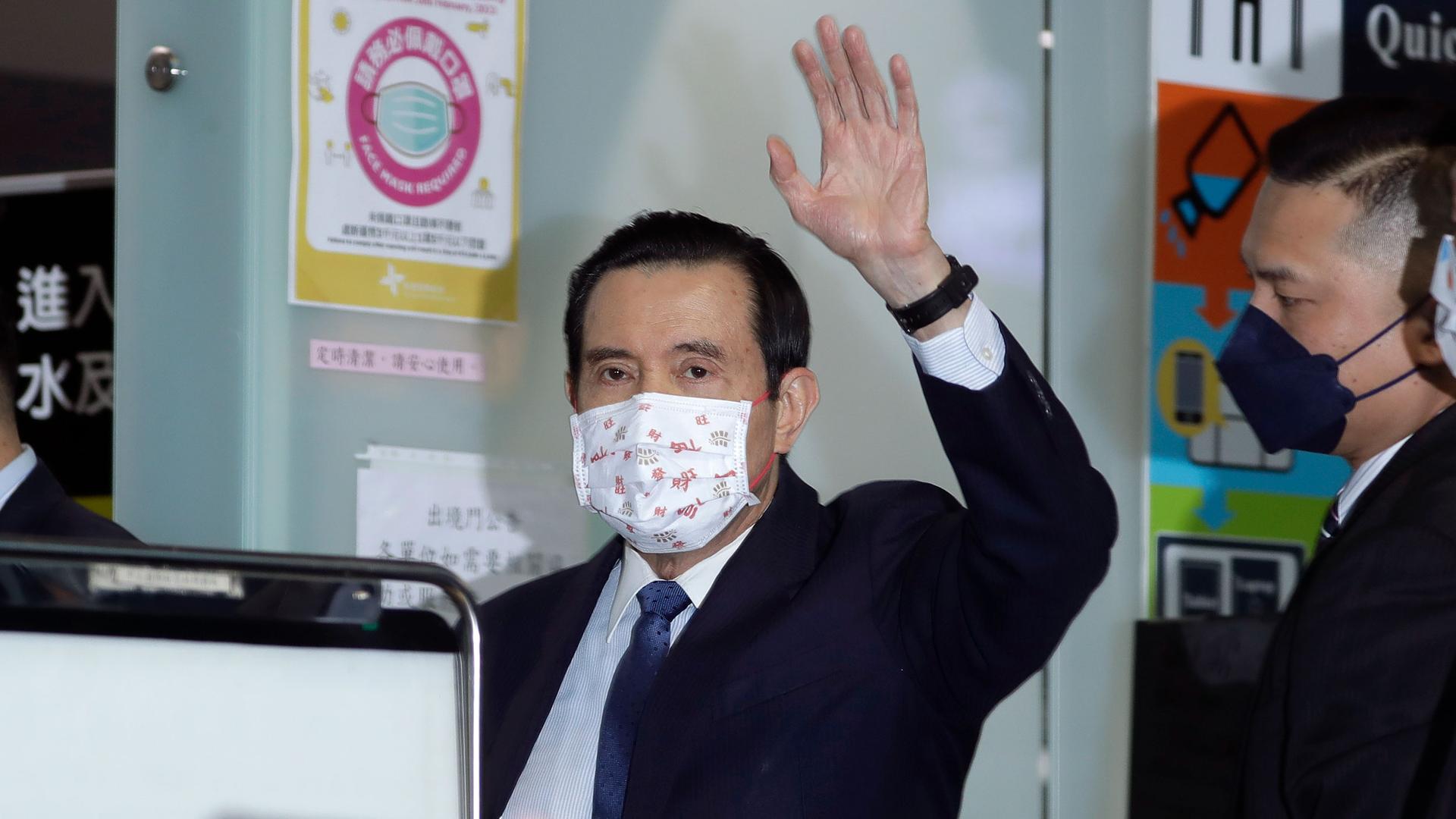Former Taiwanese president makes historic visit to China
Taiwan’s former President Ma Ying-Jeou flew to Shanghai on Monday, becoming the first Taiwanese leader to set foot in China since the end of the Chinese civil war.
Ma held a press conference just before getting on the plane to Shanghai. He’s taking 30 Taiwanese students along for the trip.
“I hope through young peoples’ enthusiasm, we can improve the current atmosphere in cross-strait relations, and bring peace to this place more quickly,” Ma said.
Meanwhile, Taiwan’s current president, Tsai Ing-Wen, is on her way to the Americas on Wednesday. Both diplomatic trips come as voters prepare for this year’s presidential campaigns.
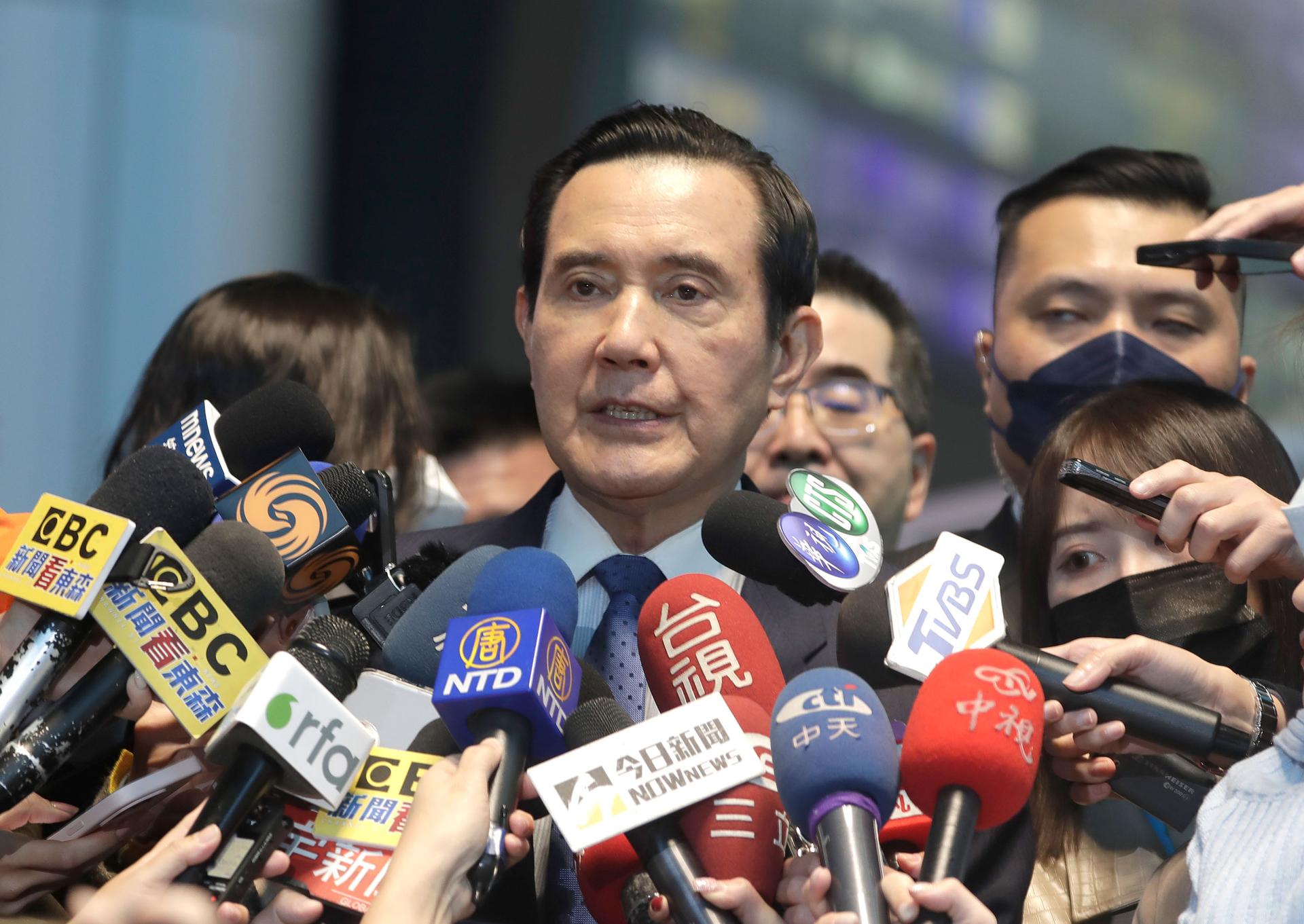
Ma led Taiwan from 2008 to 2016.
Tso Chen-Dong, a professor of political science at National Taiwan University, said he was known for improving relations with China.
“Ma Ying-Jeou’s tenure marks the most stable and peaceful time in cross strait relations since the late 1940s,” Tso said.
Toward the end of Ma’s tenure in 2014, however, many students opposed a trade deal he planned to sign with China that they felt would undermine Taiwan’s sovereignty.
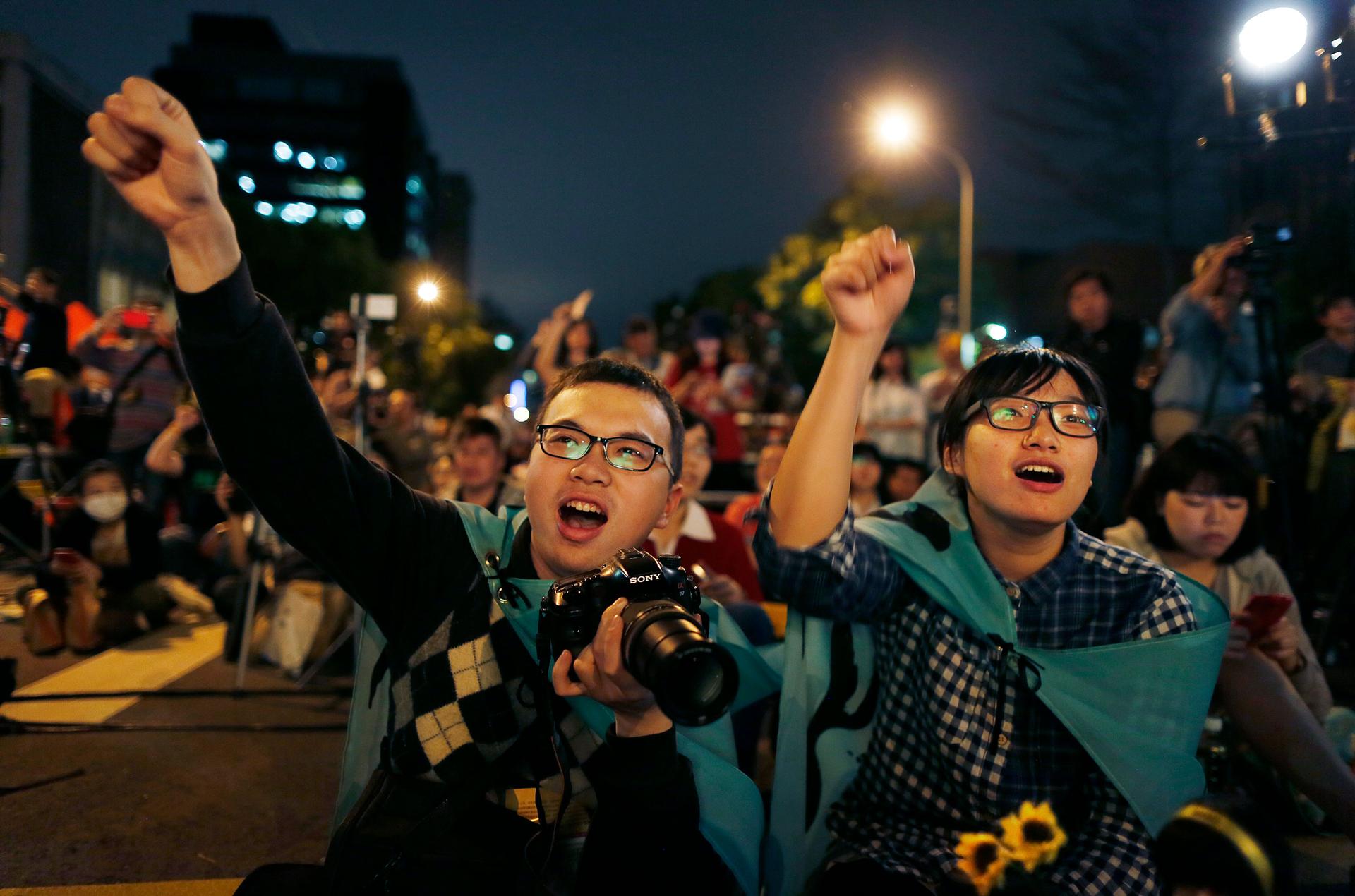
The resulting Sunflower Movement occupied Taiwan’s Legislature and ultimately, succeeded in stopping the deal. It also helped bring the Democratic Progressive Party and current President Tsai to power in the following election.
Tso said Ma is getting old, and it’s traditional for someone like him, whose family left China after the civil war, to want to go back and honor his ancestors. He said that there’s also a political reason — defusing tensions that have built up in recent years.
“For Taiwan’s sake, the best strategy is to have the two societies see the positive sides from [each other],” Tso said to describe Ma’s thinking.
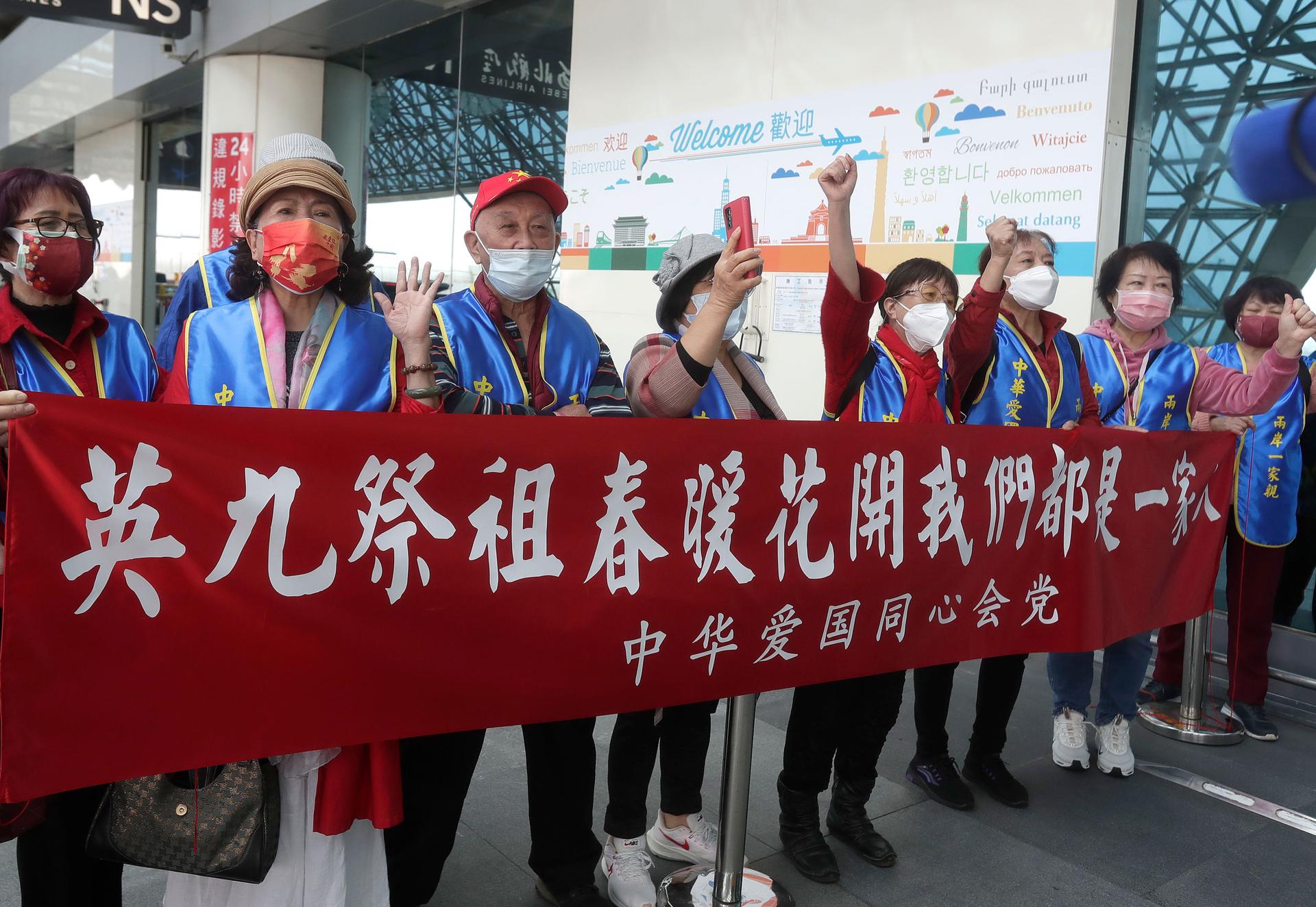
But opinions in Taiwan are divided on Ma’s visit.
Max Yu is former dean of the political warfare academy at Taiwan’s national defense university. He said China’s government timed the visit to undermine the Democratic Progressive Party, which favors Taiwanese sovereignty.
“This event, of course, will attract attention and coverage … prior to Tsai Ing-Wen’s planned visit to the United States.”
President Tsai will visit several Central American allies of Taiwan and meet with US House of Representatives Speaker Kevin McCarthy.
Yu said China wants to use Ma’s visit to convince Taiwanese voters that only his party, the KMT, can negotiate with China to deliver peace in the Taiwan strait. At the same time, he said, China is escalating threats to Taiwan while it’s under the current ruling party.
“China intentionally creates these kinds of fear-of-war factors in Taiwan by increasing military intimidation tactics, and that actually affects neutral voters,” Yu said.
He argues China also timed another event to embarrass Taiwan’s current president: On Monday, Honduras officially began diplomatic relations with China at a ceremony in Beijing, ending its relations with Taiwan.
Speaking at the ceremony, China’s Foreign Minister Qin Gang said his government was happy with Honduras’s decision.
That brings Taiwan down to only 13 official diplomatic allies.
The move came just days before Tsai was scheduled to visit the United States to meet with House Speaker Kevin McCarthy, as well as visit several Central American allies of Taiwan.
Tsai released a video message on Sunday as Taiwan responded by ending relations with Honduras.
“We will not engage in meaningless dollar diplomacy with China,” Tsai said. “In the past few years, China has constantly used various methods to suppress Taiwan’s international participation.”
Taiwan has lost a total of nine diplomatic allies since Tsai took office in 2016. Political scientist Tso Chen-Dong said China was much less aggressive during Ma’s presidency.
However, Taiwan’s unofficial relationships with allies are growing.
In the wake of Russia’s full-scale invasion of Ukraine, nearby countries Lithuania and the Czech Republic have boosted ties with Taiwan — in spite of Chinese pressure.
The largest delegation ever from the Czech Republic arrived in Taiwan on March 25, with about 150 politicians, entrepreneurs and professors.
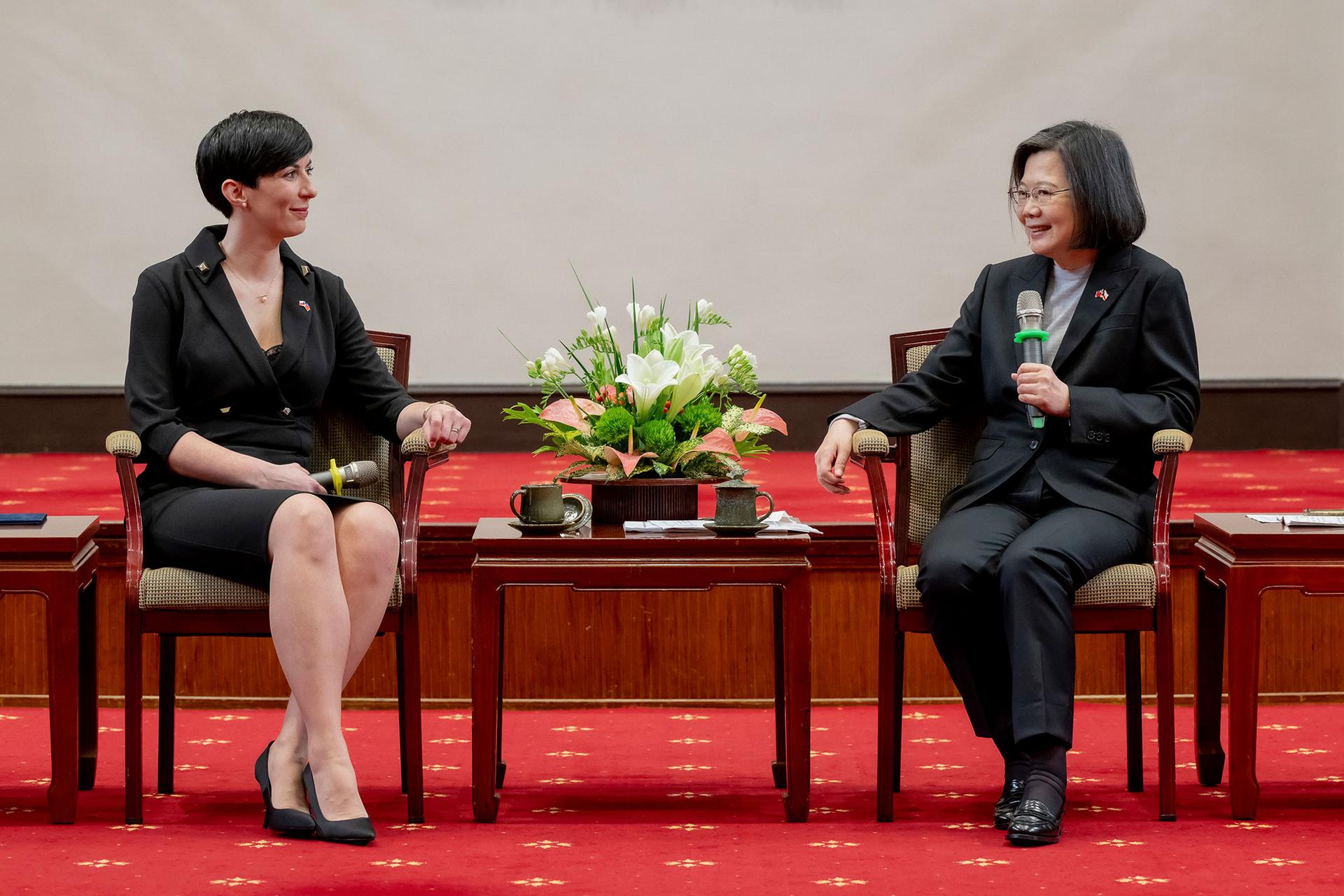
On a visit to the eastern Taiwanese city of Yilan, the speaker of the Czech Parliament’s lower house, Marketa Pekarova Adamova, spoke in Chinese about the value of the relationship.
“The history between Taiwan and the Czech Republic goes back more than 30 years,” Adamova said.
“We treasure that history, so as other countries break diplomatic ties with Taiwan, we feel we should value our friendship even more.”
As Tsai prepares for her trip to the Americas, and Taiwan for its next election, the symbolism of events like these could weigh on voters’ decisions.
We want to hear your feedback so we can keep improving our website, theworld.org. Please fill out this quick survey and let us know your thoughts (your answers will be anonymous). Thanks for your time!
